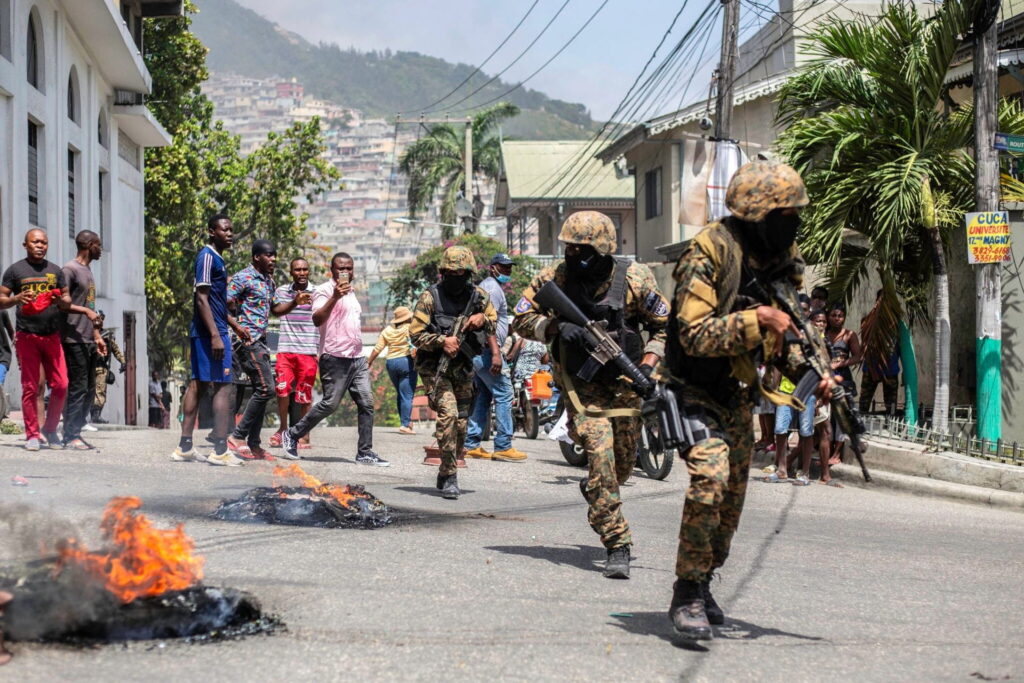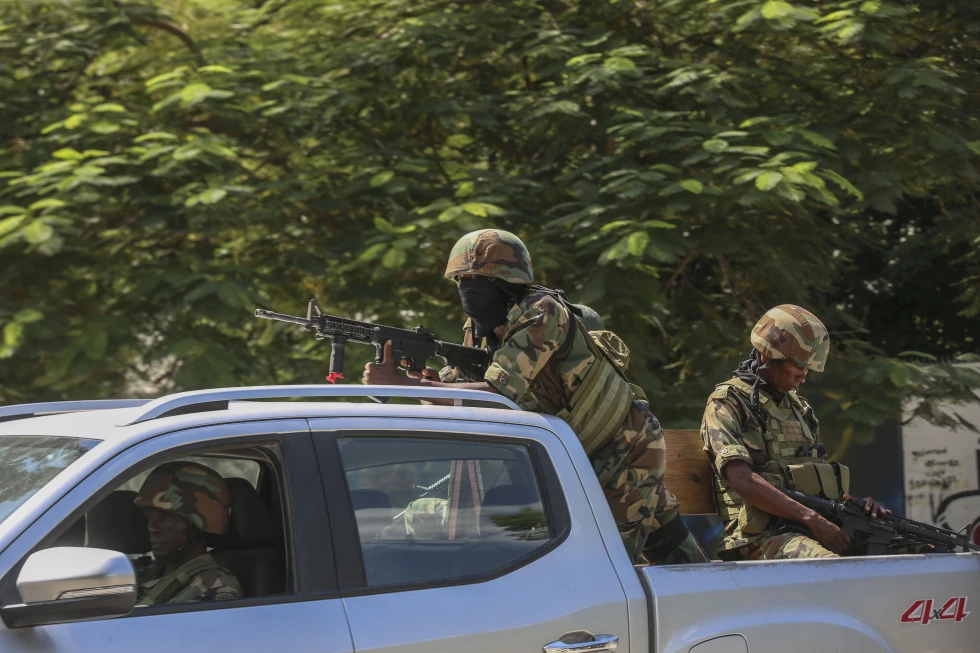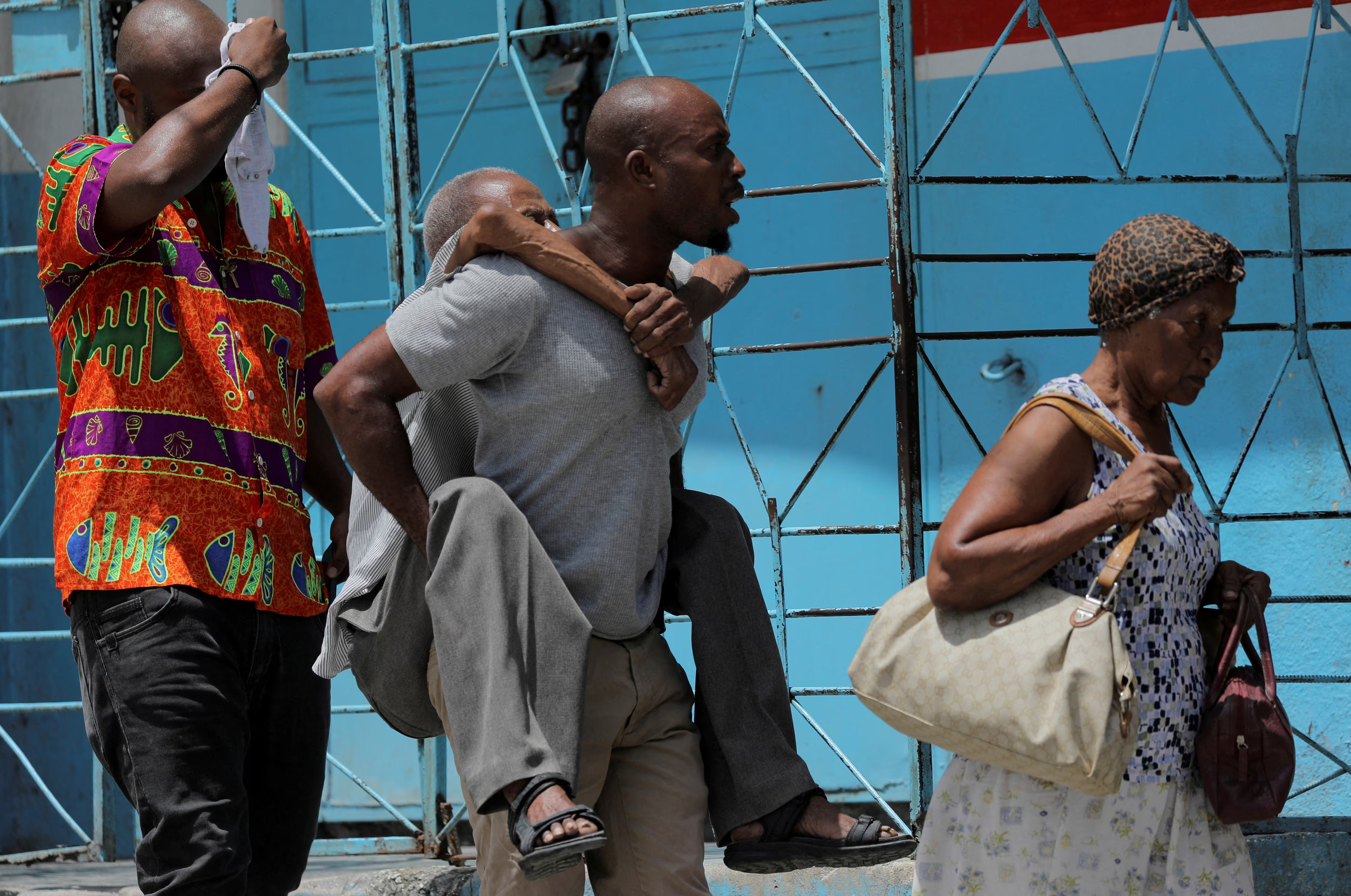Haitian police forces are locked in fierce battles with armed gangs attempting to seize control of Solino, one of the capital’s few remaining gang-free neighborhoods, as violence escalates across Port-au-Prince.

The confrontation, which began Thursday, prompted Prime Minister Garry Conille to order an emergency redeployment Monday of hundreds of elite police officers and soldiers from official protection duties to defend threatened neighborhoods.
“We will not cede strategic neighborhoods such as Solino and other recently liberated areas. The security of our citizens is non-negotiable,” Conille declared on social media platform X.
Police have secured several areas of Solino, according to a late Sunday statement from Haiti’s National Police, even as residents continue making desperate radio appeals for help while fleeing their homes.

The attacks are led by “Viv Ansanm” (Living Together), a powerful coalition formed in September 2023 between previously rival gang federations. Gang members, brandishing automatic weapons in social media videos, have threatened to “burn to ashes” anyone not aligned with their coalition.
The United Nations’ International Organization for Migration reports the violence has displaced more than 4,200 people from affected areas, including Tabarre 27 neighborhood. Over sixty percent of these refugees have moved into already overcrowded makeshift shelters housing previous victims of gang violence, while others sought protection in schools, churches, and health centers.
Gangs currently control approximately eighty percent of Port-au-Prince and have explicitly threatened journalists covering the recent attacks, naming specific reporters and calling for their deaths.

The Viv Ansanm coalition gained prominence after launching major attacks on government infrastructure in February, contributing to Prime Minister Ariel Henry’s resignation. The group has also united to oppose a UN-backed Kenyan police mission aimed at reducing gang violence.
According to recent data from ACLED, a U.S. conflict research organization, the coalition’s formation led to a seventy-eight percent reduction in inter-gang violence between March and August compared to the previous six months. However, ACLED warns the alliance will likely persist as long as it faces the common threat of international intervention.
The coalition has redirected its focus from internal conflicts to criminal activities and confrontations with security forces, demonstrating a strategic shift in Haiti’s complex urban violence landscape.
AP



